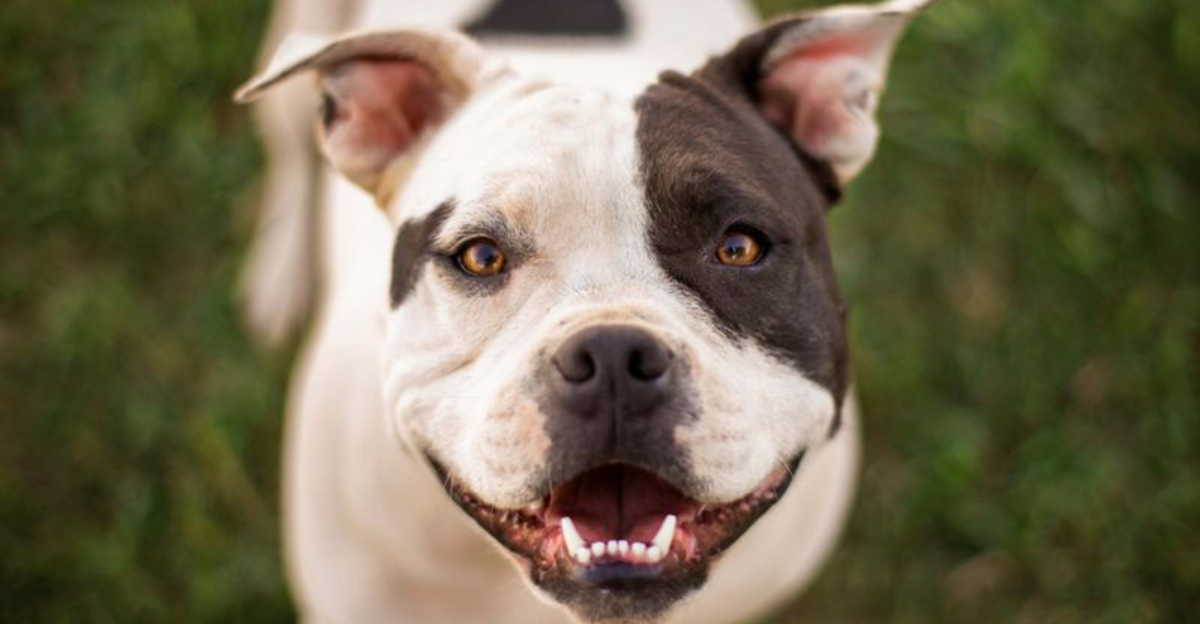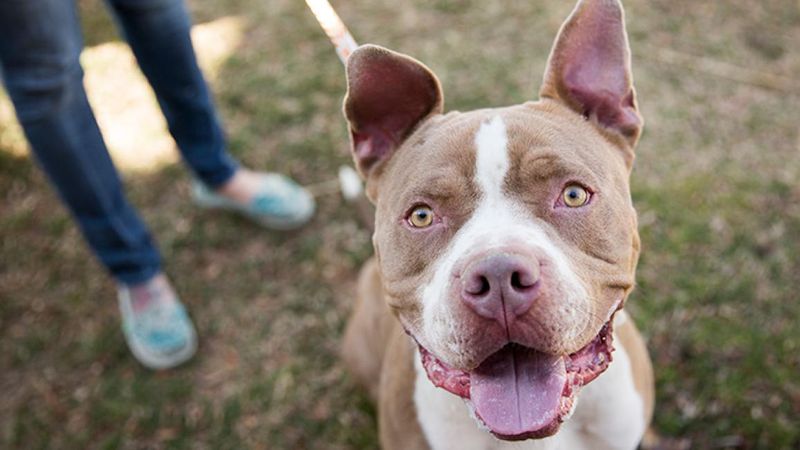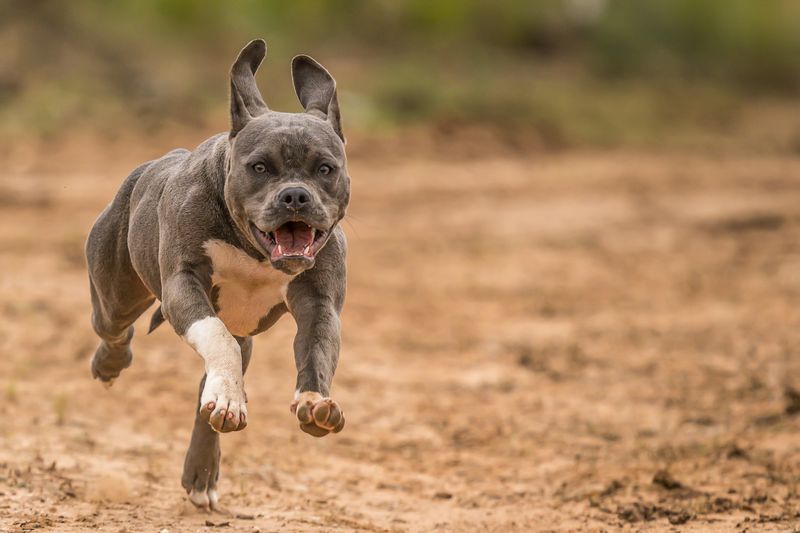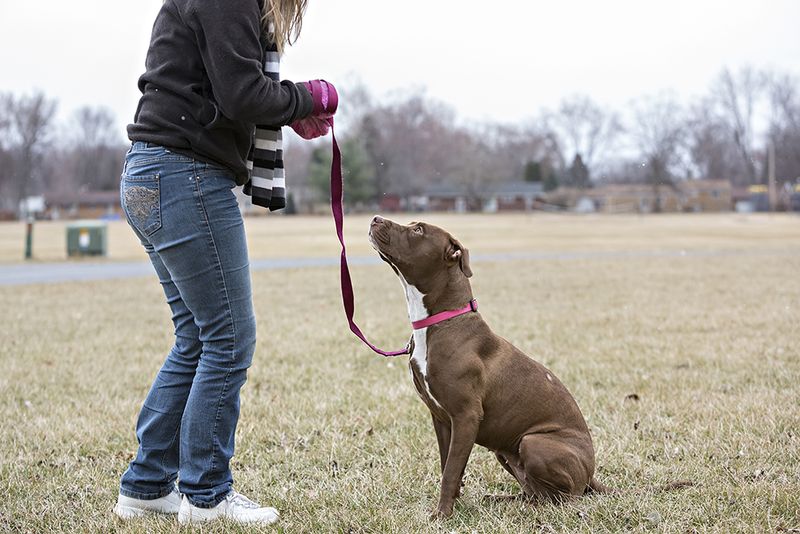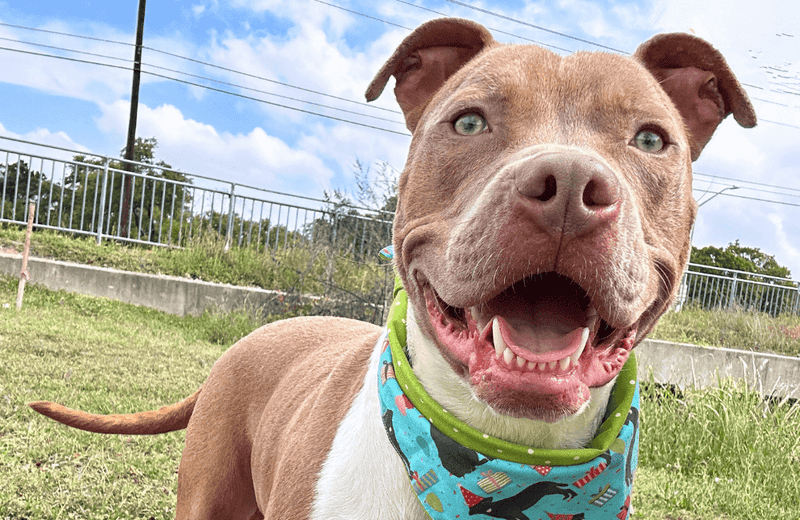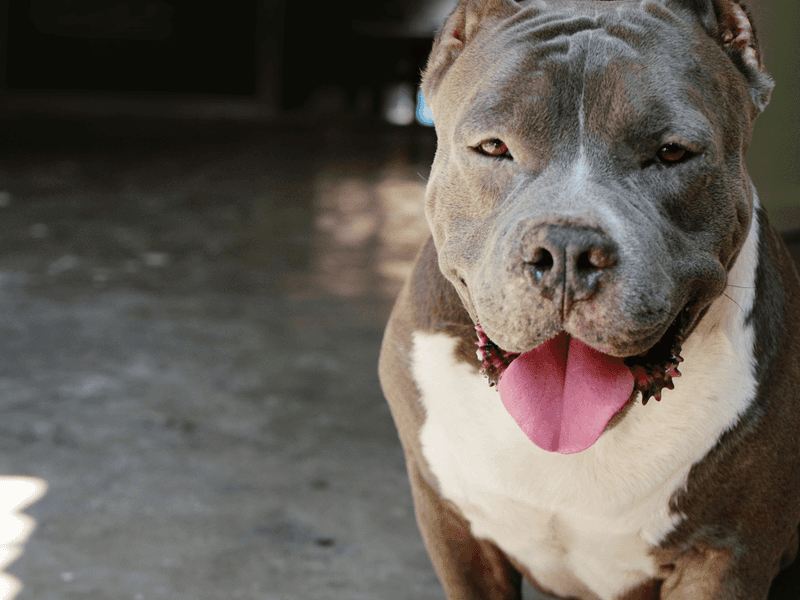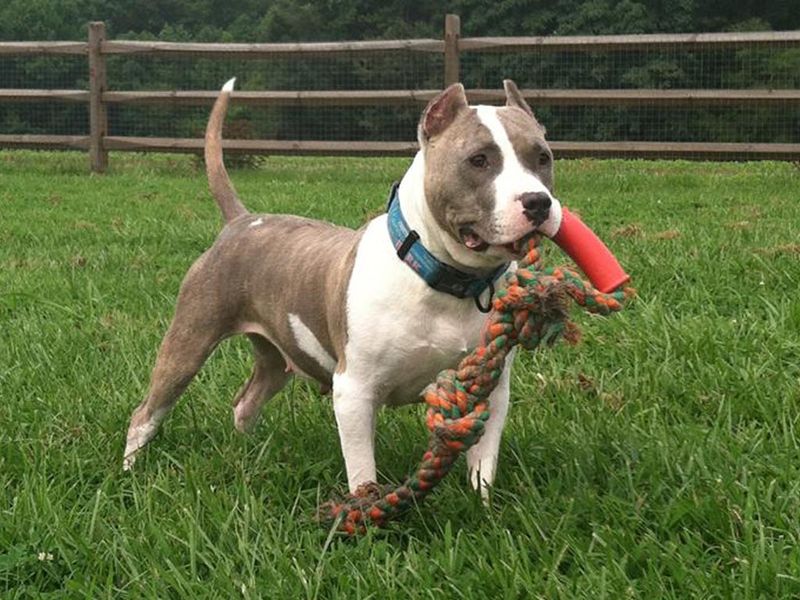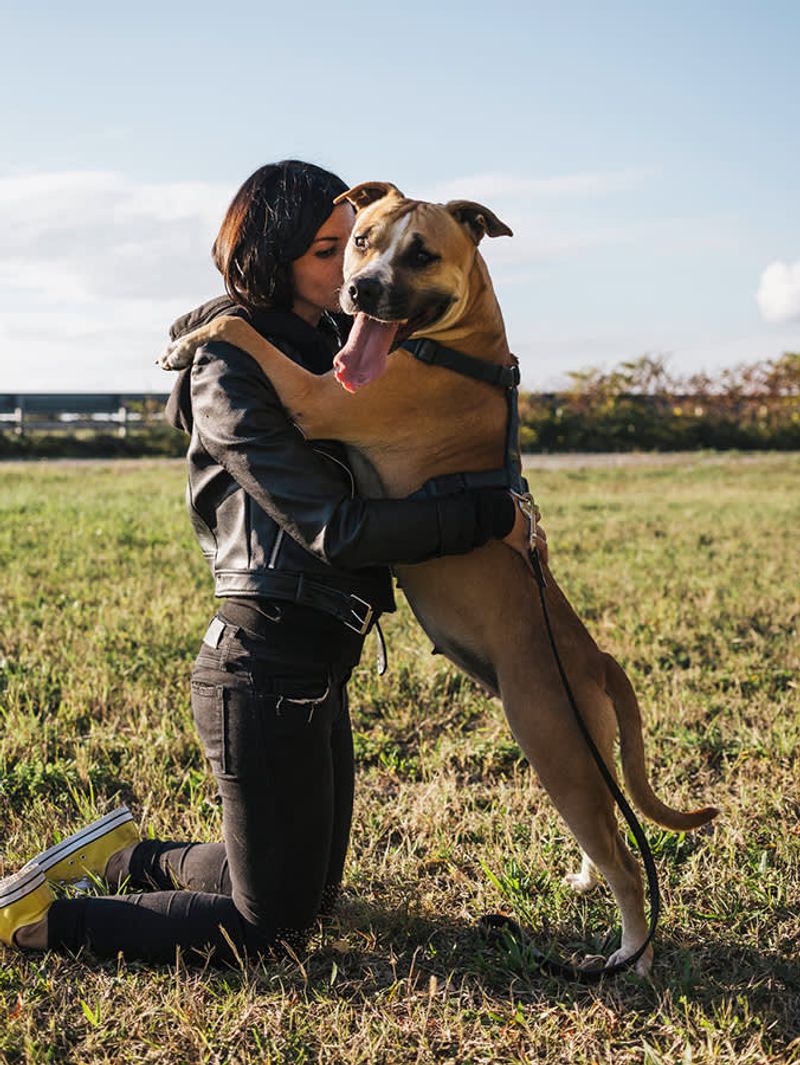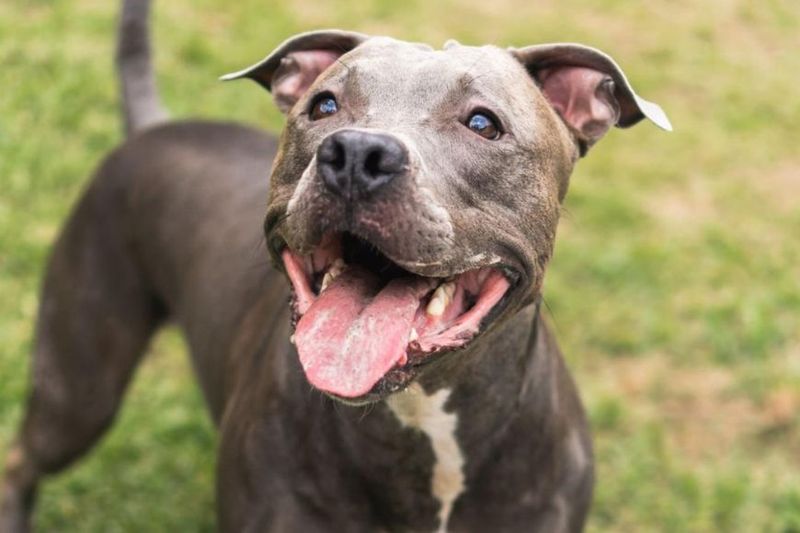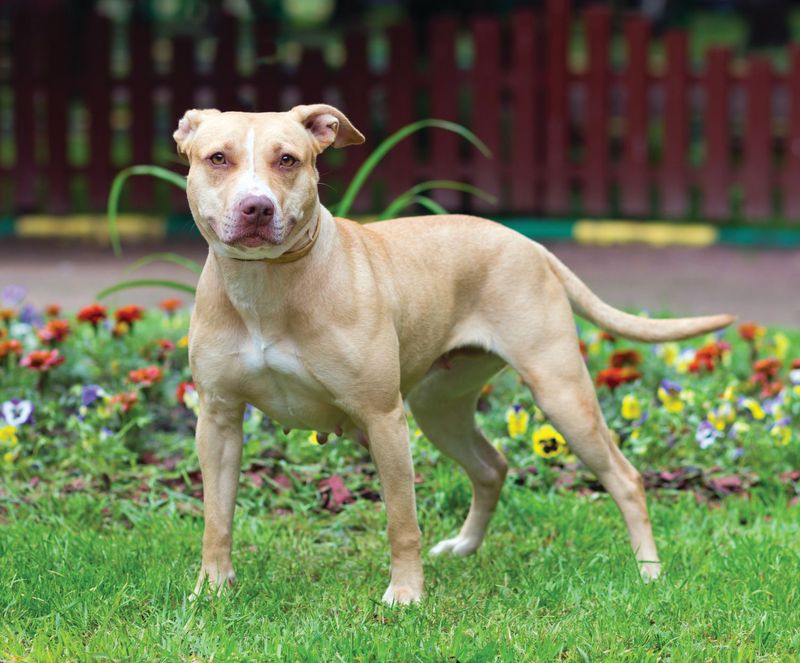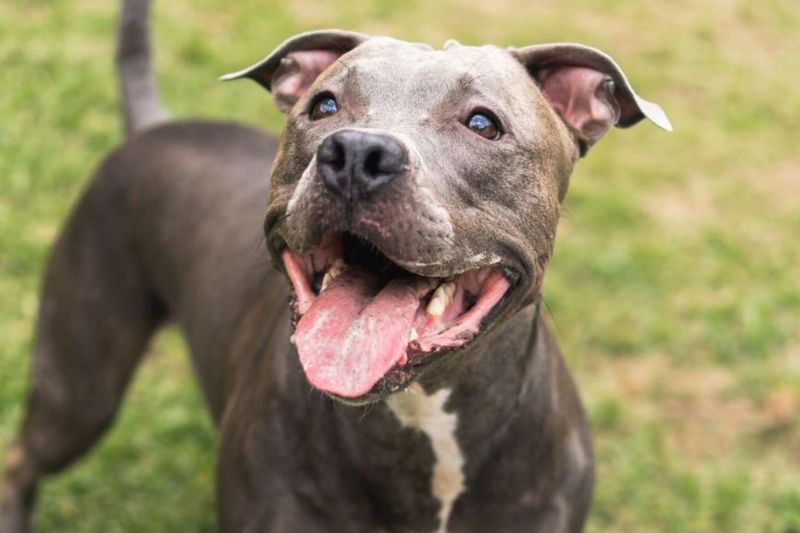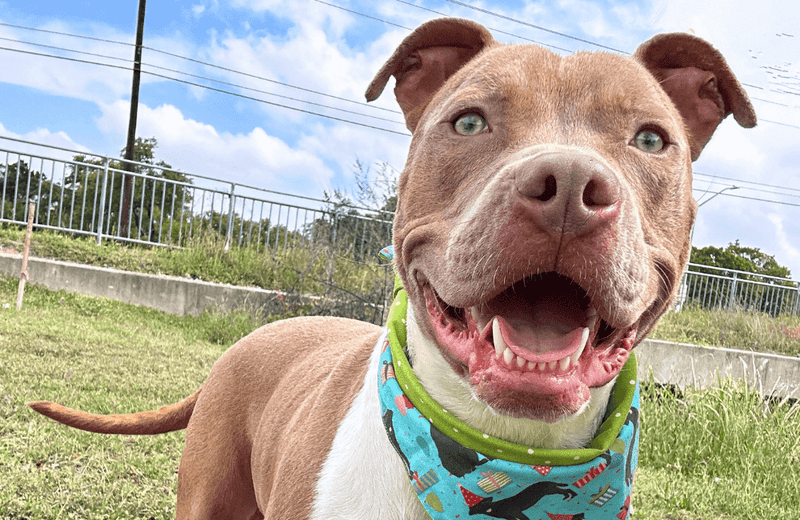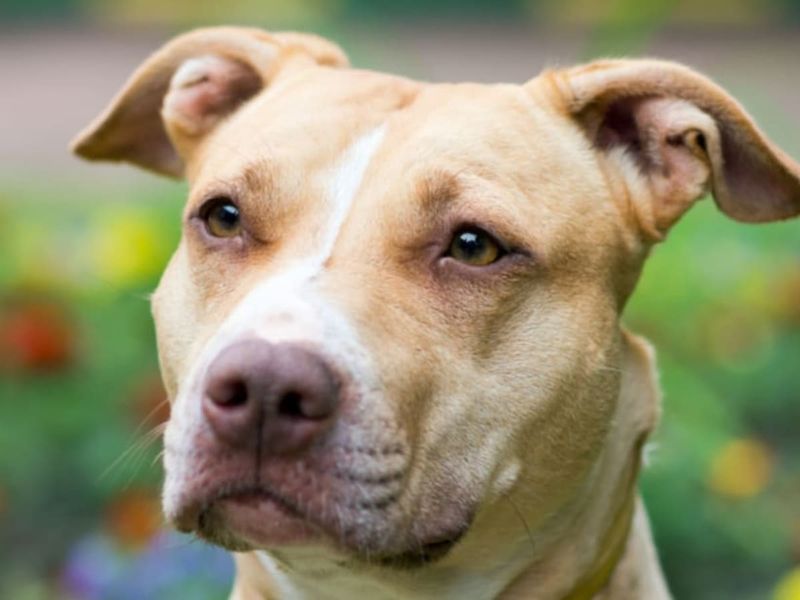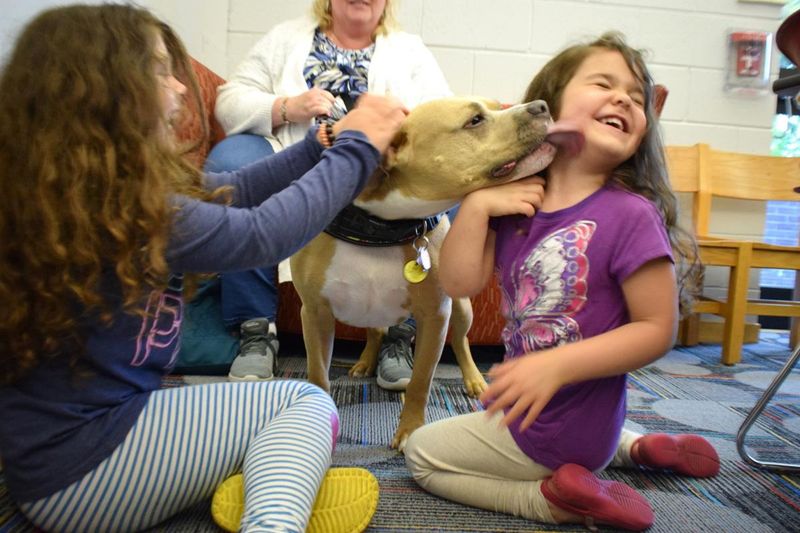Pit Bulls often face a variety of challenges and misconceptions. This blog post explores the most frequently reported issues related to them, aiming to provide insight and understanding.
Aggression Towards Other Dogs
Aggression in Pit Bulls is often reported, especially towards other dogs. This behavior can stem from a lack of socialization during puppyhood, leading to territorial instincts. Many owners find that structured training and positive reinforcement can help mitigate this behavior.
It’s essential to understand that aggression is not inherent to Pit Bulls alone; it can be seen in various breeds. Responsible ownership and training can play a significant role in altering such behavior.
Ensuring that a Pit Bull is well-socialized with other dogs from an early age is key to preventing aggression issues.
Misunderstood Reputation
Pit Bulls are often misunderstood due to their portrayal in media. This negative reputation stems from a history of being associated with illegal activities like dog fighting.
Many Pit Bulls are loving, family-oriented pets that share affectionate bonds with their owners. Understanding and education can change perceptions, showing that these dogs are capable of being gentle companions.
By promoting responsible ownership, communities can foster a more positive image of Pit Bulls, highlighting their true nature as loving pets rather than aggressive animals.
Breed-Specific Legislation
Breed-specific legislation (BSL) targets Pit Bulls, banning or restricting ownership in various regions. These laws are often based on misconceptions, failing to address the root causes of aggressive behavior in dogs as a whole.
Critics argue that BSL is ineffective, pointing out that responsible ownership and proper training are more effective solutions.
Communities are encouraged to focus on education rather than banning, fostering environments where Pit Bulls can thrive without prejudice. Challenging these laws can pave the way for more inclusive and effective dog ownership regulations.
High Energy Levels
Pit Bulls are known for their high energy levels, requiring ample exercise to maintain their health and happiness. Without proper outlets for their energy, they may develop destructive behaviors.
Regular walks, play sessions, and mental stimulation are crucial for their well-being. Engaging them in activities like agility training can also be beneficial.
Owners often find joy in the vibrant, playful nature of Pit Bulls. By providing them with the appropriate environment, these dogs can flourish, showcasing their lively and spirited personalities.
Strong Prey Drive
The strong prey drive in Pit Bulls can be both a charm and challenge. This instinct may lead them to chase small animals or objects, potentially leading to risky situations.
Training and supervision are critical in managing this behavior. Many owners use games and activities to redirect their focus, ensuring safety and enjoyment.
Understanding this trait allows owners to harness their Pit Bull’s drive positively, turning what could be a concern into an engaging aspect of their personality, filled with excitement and purpose.
Health Concerns
Pit Bulls, like many breeds, are prone to certain health issues such as hip dysplasia, allergies, and heart disease. Regular veterinary check-ups and a balanced diet are essential to maintaining their health.
Early detection and treatment can make a significant difference in managing these conditions. Owners often find comfort in forming close partnerships with veterinary professionals.
Despite these concerns, Pit Bulls are resilient dogs that, with proper care, can lead long, healthy lives. Awareness and proactive care are key to ensuring their well-being.
Stigma in Housing
Many Pit Bull owners face challenges when seeking housing due to breed restrictions. These policies often stem from misconceptions, leaving families in difficult situations.
Advocacy and education can play a role in changing these policies, helping to demonstrate that Pit Bulls can be well-behaved tenants.
By sharing positive stories and promoting responsible pet ownership, communities can work towards more inclusive housing options. This change can lead to happier families and more secure living environments for Pit Bulls and their owners.
Need for Socialization
Socialization is vital for Pit Bulls to develop into well-rounded pets. Introducing them to different environments, people, and animals can prevent behavioral issues.
Owners who invest time in socializing their Pit Bulls often find them to be friendly and adaptable companions. Regular trips to parks and training classes can be valuable in this process.
By fostering positive interactions, Pit Bulls can grow into confident, well-behaved members of the community, challenging stereotypes and demonstrating their potential as loving pets.
Intelligence and Training
Pit Bulls are known for their intelligence, which can be both a blessing and a challenge. Their smart nature means they respond well to training, but they also require mental stimulation to prevent boredom.
Engaging them in training sessions and puzzle games can keep their minds active and sharp. Owners often enjoy the rewarding experience of teaching these dogs new tricks and commands.
Through consistent training, Pit Bulls can showcase their cleverness and enthusiasm, becoming obedient and delightful companions.
Public Perception
Public perception of Pit Bulls often leans towards fear and misunderstanding. This skewed view is fueled by sensational media stories that paint them negatively.
Educating the public about the breed’s true nature can help shift these perceptions. Many owners actively engage in community events to showcase their Pit Bull’s loving and friendly side.
Through positive interactions and responsible ownership, the image of Pit Bulls as aggressive dogs can be transformed, revealing their true potential as affectionate companions.
Loyalty and Bonding
Pit Bulls are renowned for their loyalty, forming deep bonds with their families. This devotion makes them exceptional companions, eager to please and protect their loved ones.
Owners often describe their relationship with their Pit Bull as one of unwavering trust and affection. This unique bond is a testament to the breed’s loving nature.
While their loyalty is a cherished trait, it’s important to nurture it with respect and understanding, allowing these devoted dogs to thrive and feel secure in their environments.
Misidentification Issues
Misidentification of Pit Bulls is a common issue, with many dogs being incorrectly labeled as this breed. This mislabeling contributes to the negative stereotypes surrounding them.
Educating the public about breed identification can help alleviate this problem. DNA testing is also a beneficial tool for owners who wish to understand their pet’s genetic makeup accurately.
Addressing misidentification can help reduce unwarranted fear and improve the perception of Pit Bulls, highlighting their individuality and correcting misconceptions.
Exercise Requirements
Pit Bulls have substantial exercise needs, requiring daily physical activity to stay healthy and content. Without adequate exercise, they may develop behavioral issues such as destructiveness.
Owners can explore various activities, from hiking to playful fetch games, to keep their Pit Bull engaged and happy. A well-exercised dog is not only a healthy dog but also a more relaxed and enjoyable companion.
Understanding and meeting these exercise requirements are crucial for maintaining a harmonious relationship with a Pit Bull, ensuring their well-being and happiness.
Lack of Awareness
There is a significant lack of awareness regarding Pit Bulls, leading to widespread misconceptions. Many people are unaware of their positive attributes and potential as loving family pets.
Community outreach and education programs can bridge this gap, providing accurate information and dispelling myths. Owners often take pride in showcasing their Pit Bull’s gentle nature to friends and neighbors.
By promoting understanding and empathy, society can move towards a more positive view of Pit Bulls, appreciating them for their true character and capabilities.
Adaptability Challenges
Pit Bulls, like many dogs, may face challenges adapting to new environments or changes in their routine. This adaptability issue can lead to stress and anxiety if not managed properly.
Consistency and reassurance from their owners can help Pit Bulls feel more secure during transitions. Providing familiar objects and maintaining a routine can ease their adjustment process.
By understanding and addressing these challenges, owners can support their Pit Bull in thriving through life’s changes, fostering a sense of stability and confidence.
Media Influence
The media often portrays Pit Bulls negatively, focusing on incidents that reinforce fear rather than understanding. This portrayal contributes to widespread fear and hesitation towards the breed.
Efforts to balance this narrative with positive stories and facts are essential in reshaping public opinion. Many owners actively share their Pit Bull’s joyful experiences to counteract negative stereotypes.
Through media literacy and proactive storytelling, the perception of Pit Bulls can evolve, reflecting their true nature as loving and loyal companions.
Pit Bull Advocacy
Pit Bull advocacy is growing, with passionate individuals and organizations dedicated to changing perceptions and policies. These advocates work tirelessly to promote the breed’s positive qualities and challenge misconceptions.
Through events, workshops, and education, they strive to create a more accepting society for Pit Bulls and their owners. Their efforts often lead to policy changes and increased awareness.
By supporting these advocacy initiatives, communities can help foster a more inclusive environment where Pit Bulls are appreciated for their true nature.
Need for Structure
Pit Bulls thrive in structured environments, benefiting from consistent routines and boundaries. This need for structure helps them feel secure and reduces anxiety.
Owners who provide clear guidelines and regular schedules often find their Pit Bulls to be well-behaved and content. Training and discipline play a vital role in shaping their behavior positively.
By understanding and meeting this need, owners can ensure a harmonious relationship with their Pit Bull, allowing them to flourish in a stable and nurturing environment.
Adoption Challenges
Pit Bulls often face challenges in adoption centers due to their misunderstood reputation, leading to longer wait times for finding a home. These challenges can be disheartening for both the dogs and potential adopters.
Awareness campaigns and positive testimonials can encourage more families to consider adopting Pit Bulls, showcasing their loving and loyal nature.
By sharing success stories and promoting the benefits of adopting a Pit Bull, communities can help reduce these challenges, offering these deserving dogs the chance for a happy, loving home.
Training Sensitivity
Pit Bulls often respond best to gentle, positive reinforcement training methods. Harsh techniques can lead to fear and anxiety, hindering their progress.
Many owners find success through reward-based training, fostering a cooperative and trusting relationship with their dog. This approach highlights the breed’s eagerness to learn and please.
By focusing on positive methods, trainers can unlock the full potential of their Pit Bull, nurturing their intelligence and willingness to engage in a supportive and encouraging environment.
Breed Education
Educating the public about Pit Bulls is crucial in dispelling myths and promoting understanding. Misconceptions about the breed often overshadow their positive traits and capabilities.
Initiatives such as workshops, seminars, and informational campaigns can provide accurate insights into the breed’s true nature. Enthusiastic owners often participate, sharing firsthand experiences.
Through comprehensive education, society can move towards a more informed perspective, recognizing Pit Bulls as loving, intelligent, and capable companions deserving of respect and appreciation.
Resilience and Recovery
Pit Bulls are incredibly resilient, often bouncing back from injuries and adversity with remarkable spirit. This resilience is a testament to their strength and determination.
Owners frequently share stories of their Pit Bull’s recovery journeys, inspiring others with their courage and tenacity. These uplifting tales showcase the breed’s ability to overcome challenges gracefully.
By celebrating their resilience, we can appreciate the unique qualities that make Pit Bulls such extraordinary companions, embodying a spirit of hope and perseverance.
Importance of Advocacy
Advocacy is vital in changing perceptions and policies surrounding Pit Bulls. Passionate advocates work to highlight the breed’s positive traits and potential as loving family pets.
Through education, community engagement, and policy influence, they strive to create a more welcoming environment for Pit Bulls and their owners. These efforts lead to positive changes in laws and public opinion.
Supporting advocacy initiatives can pave the way for a more inclusive society, where Pit Bulls are recognized for their true nature and cherished as loyal companions.
Fear and Misinformation
Fear and misinformation about Pit Bulls contribute to their negative reputation. This fear often stems from sensationalized stories and myths that overshadow their true character.
Educating the public with factual information can help dispel these fears. Community events and open discussions can bridge the gap between perception and reality.
By combating misinformation, society can shift toward a more balanced view of Pit Bulls, appreciating them for their loyalty, intelligence, and loving nature.
Social Media Influence
Social media plays a crucial role in shaping perceptions of Pit Bulls. Many owners use platforms to share positive stories and images, highlighting their pets’ loving and playful sides.
This digital advocacy helps counteract negative stereotypes and reach broader audiences. Through engaging content, followers can see the delightful personalities of Pit Bulls, fostering a sense of understanding and empathy.
By leveraging social media, owners and advocates can contribute to a more positive narrative, showcasing Pit Bulls as the affectionate and loyal companions they truly are.
Overcoming Stereotypes
Overcoming stereotypes is an ongoing challenge for Pit Bulls and their advocates. These stereotypes often stem from misconceptions and misinformation, painting an unfair picture of the breed.
Through education, advocacy, and positive storytelling, these stereotypes can be dismantled. Owners play a significant role by sharing their experiences and highlighting their Pit Bull’s loving nature.
As society moves towards understanding and acceptance, Pit Bulls can shed these stereotypes, revealing their true essence as affectionate and loyal companions.
